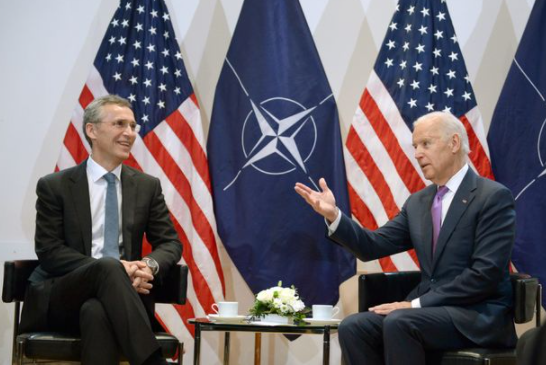Under President Biden, US foreign policy offers change — and also continuity on key issues. Delhi must seize the possibilities
Remarks by US President Joe Biden and his national security adviser, Jake Sullivan, late last week give a sense of the new administration’s foreign policy orientation. Unsurprisingly, Biden and Sullivan want to dissociate themselves from Donald Trump’s foreign policy. If Trump seemed eager to pull Washington away from the world and seemed to repose little value in traditional diplomacy, Biden declared that “America is back” and ready to reclaim global leadership. Yet, it is equally clear that there will be a significant continuity between the foreign policies of Trump and Biden — especially on trade, China and Russia.
Biden has been quick to reverse Trump’s decisions on walking out of the 2015 Paris Accord, on mitigating climate change, and on the World Health Organization. But he is making no promises to re-engage with trans-Atlantic trade negotiations or rejoin the Pacific free trade agreement. He underlined the importance of ensuring that the rules of international trade are not stacked against the US. Biden also emphasized that “there’s no longer a bright line between foreign and domestic policy”. All external initiatives, he said, must keep the interests of “American working families in mind”. Explaining the president’s emphasis on a “foreign policy for the middle class”, Sullivan argued that Washington’s purpose should not be about opening the Chinese market for Goldman Sachs, but dealing with Beijing’s “trade abuses that are harming American jobs and American workers”. This is not very different from Trump’s “America First” policy that fought against China’s manipulation of the global trading system. Biden’s tough China talk is not limited to trade issues. He insisted that his Administration will directly confront China’s threat to US “prosperity, security and democratic values”, while leaving the door open for cooperation when American interests demand it. Biden was equally harsh on Russia. Although Trump was widely accused of being a protege of the Russian President Vladimir Putin, his Administration maintained relentless pressure on Moscow. Biden promises to maintain that pressure if not ratchet it up on a range of issues — from human rights to Moscow’s meddling in democratic processes of the West and its covert cyber warfare.
Contrary to widespread Indian pessimism on Delhi’s prospects with Washington under Biden, there is considerable space for productive cooperation. As the China challenge for Indo-Pacific security continues to grow, the imperatives for Delhi for deeper defence cooperation and regional strategic coordination with Washington have become stronger. There is also room for creative joint initiatives on reforming the global trading system and advancing the global effort against climate change. On the other side of the ledger, India will have to actively manage the likely negative impact of US-Russia tensions on Delhi’s bilateral ties with both Washington and Moscow. Delhi will also need to address the growing concerns in Washington about the NDA’s government’s illiberal turn and its democratic trajectory. Although these concerns might look marginal at the moment, they have the capacity to push, slowly but surely, the terms of American political discourse on India in a negative direction.




